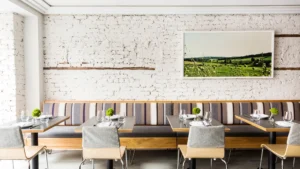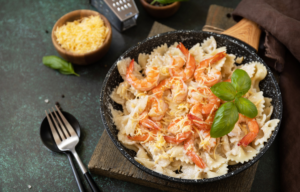The question of whether the Cruson ancestors practiced witchcraft delves into the mysteries and legends surrounding this family’s past. Witchcraft, an ancient practice often linked to folklore, spirituality, and rituals, has captured the imagination of people for centuries. Exploring the Cruson ancestors’ potential involvement in witchcraft may reveal elements of traditional practices, cultural beliefs, and folklore passed down through generations. By examining historical accounts, family legends, and regional practices, we can gain insights into whether witchcraft was indeed a part of the Cruson ancestral heritage or if the association stems from myth and speculation.
Who were the Cruson ancestors, and where did they originate?
The Cruson ancestors are believed to have roots in European regions where folklore and traditional practices were common. Many Cruson family records point to areas with rich histories of mystical beliefs and practices, but the specific origins and connections to witchcraft vary by region. Understanding their geographical roots is key to exploring their potential involvement in folk practices or mystical traditions.
What evidence suggests the Cruson ancestors practiced witchcraft?
There is limited documented evidence linking the Cruson ancestors directly to witchcraft. However, stories passed down through generations, certain family artifacts, and folklore in their originating regions might suggest an association with mystical or spiritual practices. Much of the evidence is anecdotal, derived from family lore rather than concrete historical records.
Were the Cruson ancestors involved in any known witchcraft trials or accusations?
There is currently no confirmed record of Cruson ancestors being involved in historical witchcraft trials, though it is possible that family members may have lived in areas affected by such events. Witchcraft trials were common in certain European and American regions from the 15th to the 18th centuries, and communities sometimes accused individuals based on suspicion or misunderstanding, especially if they practiced herbalism or traditional healing.
Is there any record of spiritual or ritual practices among the Cruson ancestors?
Family stories and cultural contexts suggest that the Cruson ancestors may have engaged in folk rituals or herbal practices common in their time, especially in rural communities. Such practices, often mistaken for witchcraft, involved the use of herbs, charms, or prayers to promote healing or protect against misfortune, but were generally rooted in cultural traditions rather than formal witchcraft.
How did witchcraft practices historically manifest in Cruson ancestors’ regions?
In many regions where the Cruson ancestors may have lived, witchcraft was associated with folk traditions, including herbal medicine, fortune-telling, and protective charms. These practices were often intertwined with local culture, blurring the line between spirituality and practical customs. Some of these customs may have been practiced by Cruson ancestors, reflecting the traditional knowledge passed down in rural communities.
What cultural beliefs may have influenced the Cruson ancestors’ connection to witchcraft?
Cultural beliefs around protection, fortune, and healing may have influenced the Cruson ancestors’ practices. Folklore was deeply ingrained in rural European communities, where beliefs in supernatural forces were common. The Cruson family, like others in these communities, may have followed traditions involving charms, herbal remedies, or rituals believed to offer protection or healing, sometimes misconstrued as witchcraft.
Are there specific symbols or artifacts linked to the Cruson family and witchcraft?
While no specific artifacts are definitively linked to witchcraft, families with similar backgrounds sometimes possess heirlooms like amulets, handwritten charms, or herbal collections. If the Cruson family retained any such artifacts, they might be symbols of traditional beliefs or protective items rather than evidence of witchcraft. These artifacts often held sentimental or cultural significance rather than magical properties.
Did the Cruson ancestors use herbal remedies or folk medicine?
It is likely that, like many families of their time, the Cruson ancestors may have used herbal remedies and folk medicine, which were standard in rural communities. These practices, which often involved knowledge of local plants and natural treatments, were passed down through generations. While herbalism was practical, it was sometimes mistaken for witchcraft during periods of heightened suspicion.
Could the Cruson ancestors’ practices have been misunderstood as witchcraft?
Many traditional practices involving healing, protective charms, or fortune-telling were misunderstood as witchcraft, especially during times of religious or social tension. The Cruson ancestors’ use of folk medicine or charms could easily have been misinterpreted as witchcraft by outsiders unfamiliar with these customs, especially in regions where non-traditional practices were viewed with suspicion.
How do family legends or oral histories contribute to the association with witchcraft?
Family legends and oral histories often embellish stories from the past, contributing to an association with witchcraft. Stories passed down through Cruson family generations may include references to “mysterious” practices or individuals known for unique knowledge of herbs or protective rituals. Over time, these stories can evolve, fueling speculation about ancestral connections to witchcraft.
The question of whether the Cruson ancestors practiced witchcraft remains rooted more in legend than documented history. While folklore and traditional practices may hint at a mystical or spiritual heritage, it’s likely that any such practices were based on cultural customs common in their communities rather than formal witchcraft. Oral histories and family stories contribute to the intrigue, offering a glimpse into a time when spiritual practices were often misunderstood. By examining these traditions, we can appreciate the Cruson family’s cultural legacy and its place within the broader history of folklore and community beliefs.
For more updates viisit our website.








